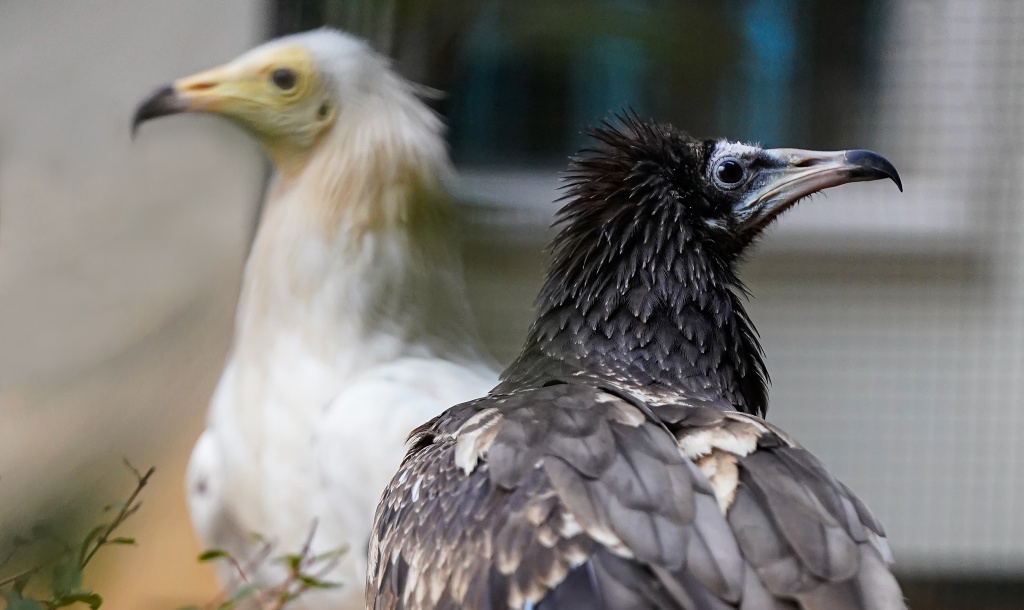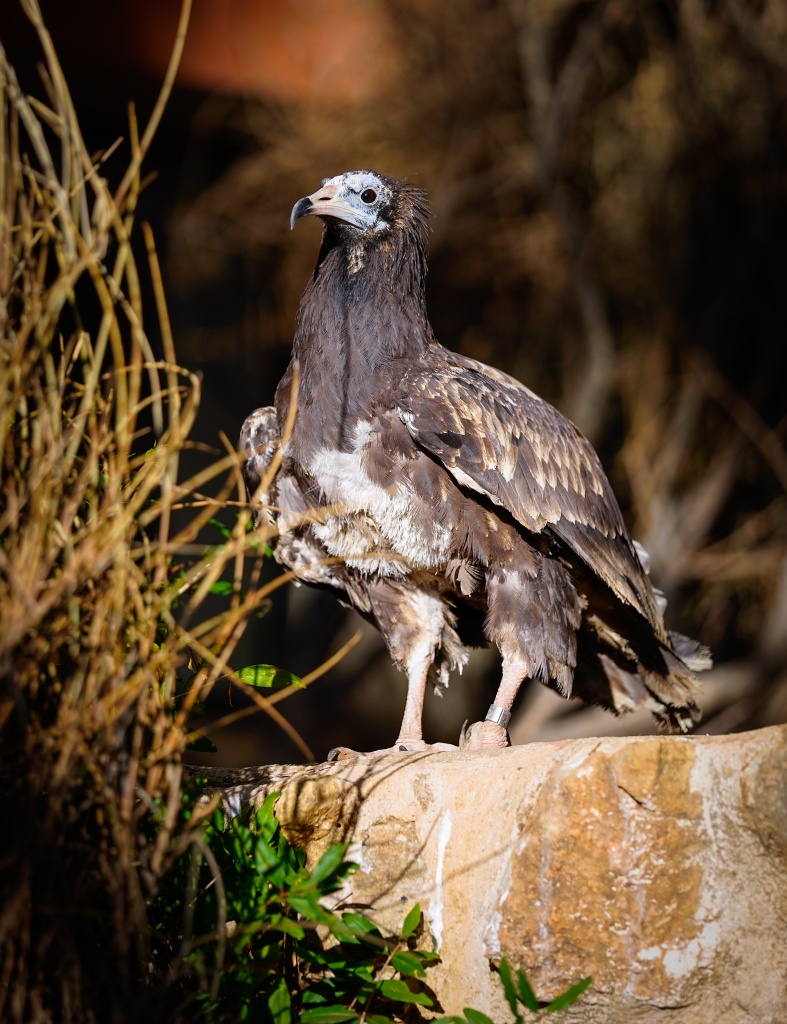Anahita, the vulture, came to Prague Zoo with a tall tale from Beirut
26. 01. 2022
This Egyptian vulture, named after the Persian goddess Anahita, has become a symbol of both tragedy and hope. After leaving its nest in the Bulgarian Rhodopes to travel to Africa, it was shot in Lebanon. However, thanks to the efforts of local conservationists, it was rescued and has found a new home at Prague Zoo where, with time, it should be part of the European Breeding Programme (EEP).

The Egyptian vulture Anahita is not yet sexually mature, so its plumage is still predominantly brown. Photo: SPNL
The Egyptian vulture is an endangered species and less than thirty breeding pairs nest in Bulgaria. Anahita hatched from one of them in the spring of 2020, and Bulgarian BirdLife workers tagged it with a satellite transmitter before it left the nest. It flew to Africa on 10th September 2020. However, after just six days it stopped, and the satellite transmitter data indicated it may have been the victim of a hunter. That was confirmed: Staff from the Society for the Protection of Nature of Lebanon (SPNL), accompanied by members of the security forces, found it in a village about 25 kilometres southeast of Beirut. Its body had at least 12 shotgun pellets.
“According to SPNL estimates, 2.6 million migratory birds are killed in Lebanon every year,” said Miroslav Bobek, Prague Zoo’s director. “This is an unbelievable number! Fortunately, thanks to the wonderful work of the Lebanese conservationists, Anahita has been saved. However, its injuries mean it can no longer return to the wild, but this tragic story does bear hope: I firmly believe that in time it will join the breeding programme and its offspring will strengthen the Egyptian vulture population living in the wild.”
Due to veterinary and administrative reasons, it was not possible to transport Anahita back to Bulgaria, as originally planned. Therefore, Prague Zoo was approached, as it has many years of experience in Egyptian vulture breeding and conservation. After four months of paperwork, Anahita finally arrived here on January 22nd, 2022.

“It is currently spending a month in quarantine, where it is undergoing examinations that will decide its further treatment,” said Antonín Vaidl, Prague Zoo’s curator of birds. “We will also determine its sex.”
Prague Zoo belongs to the fundamentally important breeders of Egyptian vultures in the world. It has kept the European Studbook since 2002 and has managed the European Breeding Programme (EEP) since 2012. During this time, it has managed to return nine vultures to the wild. The coordinator, Antonín Vaidl, is also on the Supervisory Board of the Vulture Conservation Foundation (VCF), which endeavours to protect all four European vulture species. Among its activities, the Foundation raises awareness in those European countries where these birds live. Its aim is to stop the use of poisoned baits that directly threaten the life of these scavengers. Under the coordination of Prague Zoo, permanently handicapped vultures are also placed in partner zoos and become a valuable part of breeding in zoos to reinforce the wild population.









